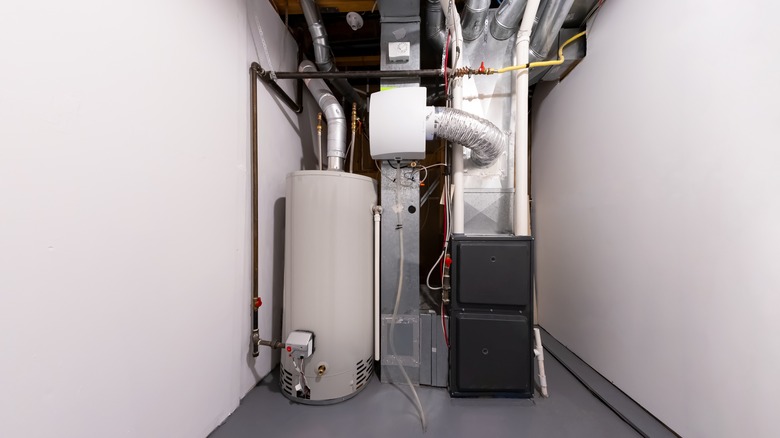Choosing the right heating system for your home is a critical decision that impacts your comfort, energy bills, and environmental footprint. As winter approaches, it’s essential to evaluate your current heating solution and consider if it’s time for an upgrade. This article explores the advantages and disadvantages of gas and electric heating systems to help you make an informed choice.
Understanding Gas Heating Systems

Gas heaters use fuels such as natural gas, propane, or liquefied petroleum gas (LPG). These systems are connected to a gas source, and a valve controls the gas flow, which is ignited by a pilot light or electric filament. There are several types of gas heating systems:
- Gas-Ducted Heating: Provides controlled, centralized heating throughout the home.
- Gas-Ducted Reverse Cycle Systems: Offer both heating and cooling capabilities, distributing temperature-controlled air evenly across the property.
Gas heating is particularly effective for larger spaces and is commonly used both indoors and outdoors. Despite initiatives to phase out gas in new constructions, gas heaters remain popular, with over 2 million Victorians using gas-based systems.
Advantages of Gas Heating
- Efficiency and Power: Gas heaters can heat large spaces quickly and maintain consistent warmth, making them ideal for colder climates.
- Cost: Natural gas is often cheaper than electricity, leading to lower running costs in some areas.
- Reliability: Gas heating systems can operate independently of electrical power, making them reliable during power outages.
Disadvantages of Gas Heating
- Environmental Impact: Gas heaters produce carbon dioxide and other emissions, contributing to air pollution and greenhouse gases.
- Safety Risks: Gas systems carry risks such as gas leaks and carbon monoxide poisoning. Proper ventilation and regular maintenance are essential.
- Installation Costs: Installing gas heaters can be more expensive due to the need for ventilation systems and gas line connections.
Understanding Electric Heating Systems

Electric heaters generate heat by passing electricity through various materials, which makes them highly efficient at the point of use. Electric heating options include:
- Heat Pumps and Reverse Cycle Systems: Suitable for heating both small and large spaces. These systems can also provide cooling in the summer.
- Split System Reverse Cycle Units: Brands like LG, Daikin, and Panasonic offer these systems, known for high air quality and climate control.
- Panel Wall Heaters: Ideal for heating smaller spaces efficiently.
Electric heaters are often considered more environmentally friendly and can be cheaper to run annually, especially when combined with renewable energy sources like solar power.
Advantages of Electric Heating
- Energy Efficiency: Electric heaters are 100% efficient at the point of use, converting all the electricity they consume into heat.
- Environmental Impact: When powered by renewable energy sources, electric heaters have a minimal environmental footprint.
- Safety: Electric heaters are generally safer, with no risk of gas leaks or carbon monoxide poisoning.
- Installation: Easier and cheaper to install, requiring only electrical connections.
Disadvantages of Electric Heating
- Running Costs: Depending on electricity prices, running costs can be higher compared to natural gas, especially during peak usage times.
- Heating Power: Electric heaters might struggle to heat large spaces as effectively as gas heaters, particularly in very cold climates.
- Dependence on Electricity: Electric heaters are useless during power outages unless backed up by an alternative power source.
Read more: Choose The Right Heating and Cooling Systems for Melbourne’s Climate
Key Considerations When Choosing Between Gas and Electric Heating
Regardless of your choice, several factors need to be considered to ensure you select the best heating system for your home.
1. Energy Efficiency
- Gas Heating: Efficiency depends on the age, condition, and technology of the equipment. Modern gas heaters are more efficient but still produce emissions.
- Electric Heating: Converts electricity into heat with 100% efficiency at the point of use. The overall efficiency can be enhanced with renewable energy sources.
2. Safety Features
- Gas Heaters: Require proper ventilation to prevent carbon monoxide buildup. Safety features include pressure relief valves, exhaust systems, and CO detectors.
- Electric Heaters: Include safety features such as circuit breakers, thermal shut-offs, and safety certifications.
3. Installation Costs
- Gas Heating: Installation can be costly due to the need for ventilation and gas line connections.
- Electric Heating: Generally cheaper and simpler to install, with fewer structural modifications needed.
4. Operating Costs
- Gas Heating: Often cheaper to run due to lower natural gas prices, but this can vary based on location and market conditions.
- Electric Heating: Can have higher running costs, but efficient systems and renewable energy can mitigate this.
5. Environmental Impact
- Gas Heating: Produces emissions that contribute to air pollution and greenhouse gases.
- Electric Heating: When sourced from renewable energy, it has a minimal environmental impact.
6. Maintenance Requirements
- Gas Heating: Requires regular inspections, cleaning, and potential repairs, especially for combustion components.
- Electric Heating: Needs periodic safety checks and maintenance but is generally easier and cheaper to maintain.
Detailed Comparison of Gas vs Electric Heating
Cost Analysis
The cost of heating is a major factor for many homeowners. Let’s break down the costs associated with gas and electric heating systems:
- Initial Costs: Gas heating systems typically have higher initial costs due to the need for gas lines and ventilation systems. Electric heaters, on the other hand, often have lower upfront costs and simpler installation processes.
- Running Costs: Gas is generally cheaper than electricity, but this can vary based on location. In areas where natural gas is abundant and cheap, gas heating can be more cost-effective. However, with rising electricity prices and the potential for renewable energy, electric heating can also be competitive.
- Maintenance Costs: Gas heaters require more frequent maintenance to ensure safe operation, which can add to the overall cost. Electric heaters have lower maintenance costs and fewer components that require regular servicing.
Environmental Impact
- Gas Heating: Produces greenhouse gases and other pollutants, contributing to climate change and air quality issues. However, natural gas is cleaner than coal and oil, and modern gas heaters are more efficient and produce fewer emissions.
- Electric Heating: The environmental impact depends on the source of electricity. If the electricity is generated from renewable sources, electric heating is much cleaner. Conversely, if the electricity comes from fossil fuels, the environmental benefits are reduced.
Performance and Efficiency
- Gas Heating: Gas heaters can provide intense, immediate heat and are effective in large spaces and colder climates. They also maintain performance in extreme cold, unlike some electric heaters.
- Electric Heating: Electric heaters are highly efficient at the point of use and offer precise temperature control. However, they may not provide the same level of heating power as gas heaters in very cold conditions.
Safety Considerations
- Gas Heating: Requires proper ventilation and regular maintenance to prevent hazards like gas leaks and carbon monoxide poisoning. Modern gas heaters come with safety features, but the risks are inherently higher than with electric heaters.
- Electric Heating: Generally safer, with no combustion process involved. Safety features like thermal cut-offs and circuit breakers make electric heaters a low-risk option.
Installation and Flexibility
- Gas Heating: Installation can be complex and costly due to the need for gas lines and ventilation. However, once installed, gas heaters provide robust and reliable heating.
- Electric Heating: Easier and cheaper to install, with flexible placement options. Electric heaters can be installed almost anywhere and do not require extensive modifications to the home.
Making the Right Choice
Choosing between gas and electric heating ultimately depends on your specific needs, preferences, and circumstances. Here are some guidelines to help you decide:
- Consider Your Climate: If you live in a very cold area, gas heating might be more effective. Electric heating is ideal for milder climates or homes with good insulation.
- Evaluate Your Budget: Consider both the initial and ongoing costs. While gas heaters may have lower running costs, electric heaters can be cheaper to install and maintain.
- Think About the Environment: If reducing your carbon footprint is important to you, electric heating powered by renewable energy is the best choice.
- Assess Your Home’s Infrastructure: If your home already has a gas connection, gas heating might be a convenient option. For homes without gas lines, electric heating is the easier choice.
- Prioritize Safety: If safety is your top concern, electric heating is generally safer with fewer risks associated with gas combustion.
Conclusion
Both gas and electric heating systems have their advantages and disadvantages. Gas heating offers powerful and cost-effective warmth, especially in larger spaces and colder climates. Electric heating, on the other hand, is more environmentally friendly, safer, and often cheaper to install and maintain.
As Melbourne moves towards a more sustainable future, the Victorian government is encouraging a shift from gas to electric heating. This change is part of a broader strategy to reduce greenhouse gas emissions and promote renewable energy. Starting in 2024, new homes in Victoria will no longer have gas installations, making electric heating the preferred choice.
However, if your home already has a gas connection, gas heating remains a viable option. For those considering new installations, electric heating, particularly reverse-cycle systems, offers numerous benefits, including efficiency, cost savings, and environmental friendliness.






